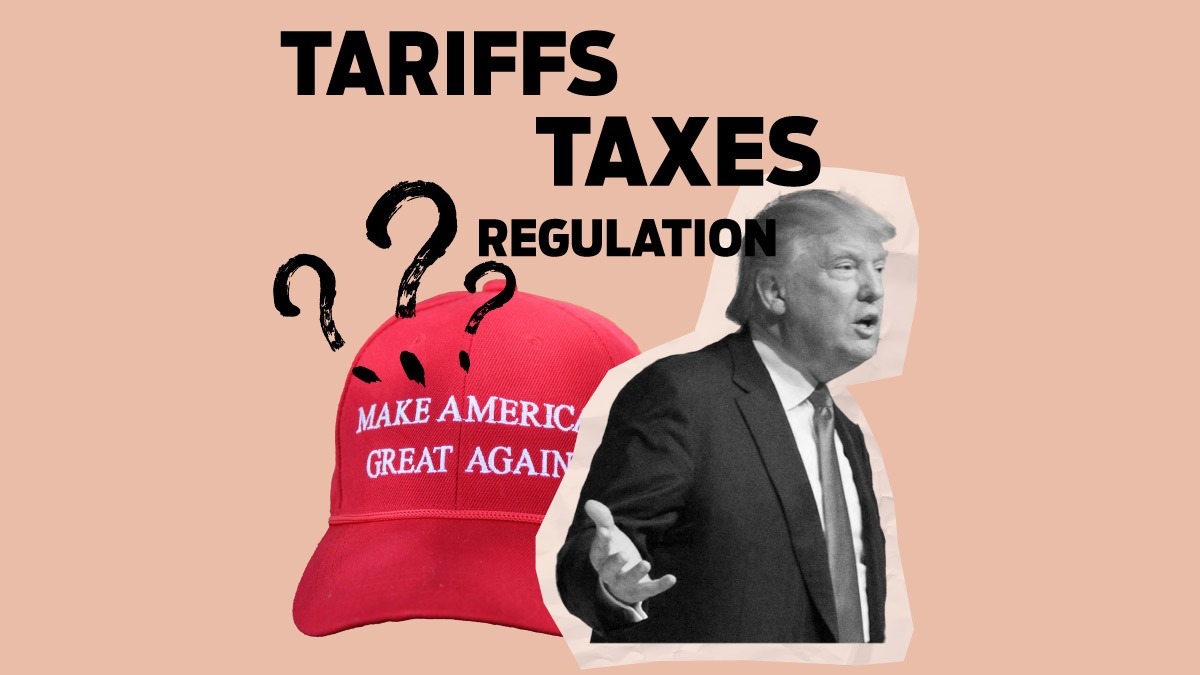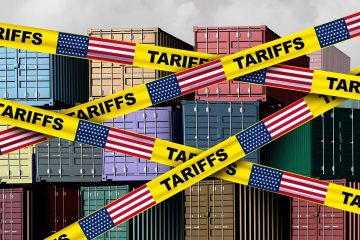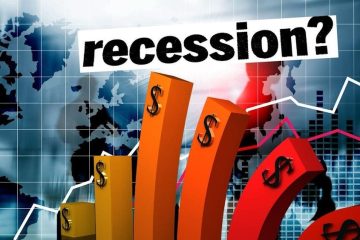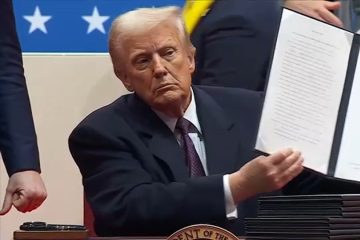Trump Team Considers Higher and Wider Tariffs

The Trump administration is actively engaged in finalizing the details of its new tariff strategy, facing a self-imposed deadline of Wednesday. The president has committed to transforming the American economy through a series of new levies, prompting a careful evaluation of available options. A central issue under discussion is the potential implementation of tailored tariff rates for U.S. trading partners, as indicated by President Trump in recent weeks, versus the possibility of returning to his campaign commitment of a uniform tariff that would impact nearly all nations engaged in trade with the U.S., according to sources familiar with the discussions.
Last week, Trump focused on tempering expectations regarding his proposed reciprocal tariff plan set for April 2. He reiterated this stance while aboard Air Force One on Sunday night, claiming he would adopt a “much more generous” approach compared to his earlier commitments to align U.S. tariffs with those imposed by other countries. In recent days, Trump has urged his team to adopt a more assertive stance, according to sources familiar with the discussions, prompting them to formulate strategies that would impose elevated tariff rates across a wider array of nations. On Sunday night, Trump reiterated that narrative, indicating his intention to impose tariffs of some form on “essentially all” U.S. trading partners.
The precise mechanisms through which this will occur are not yet fully understood. Recently, advisers have deliberated on the potential implementation of global tariffs reaching as high as 20%, which would impact nearly all U.S. trading partners. For several months, Trump and his team advocated for a particular plan during the campaign, only for the president to later abandon it in favor of a reciprocal tariff strategy, which he described as “what they [other nations] charge us, we charge them.” An administration official indicated that the reciprocal plan remains a viable option, noting the president’s inclination to impose tariffs on every nation with which the U.S. has a trade deficit. The official emphasized the desire for a “clean number” for each country, although no definitive decisions have yet been reached.
The official noted that regardless of the ultimate plan, the president desires the policy to be characterized as “big and simple.” The implication is that the ultimate measure will encompass a wider scope than the initial strategy of focusing on imposing tariffs on the United States’ largest trading partners, which constitutes approximately 15% of global nations, a group that Treasury Secretary Scott Bessent has referred to in public statements as the “dirty 15.”
The ongoing discourse surrounding the reciprocal tariff plan is complemented by the president’s team contemplating the introduction of a series of new industry-specific tariffs. These tariffs may target critical minerals and products incorporating them, alongside other sectors, according to sources privy to the discussions. The timing of the unveiling of those duties remains uncertain, with expectations that they will be incorporated into a trade policy review document. This document is scheduled for delivery to Trump on Tuesday, just one day prior to the anticipated announcement. The reciprocal strategy received backing from National Economic Council chair Kevin Hassett, aiming to recalibrate U.S. trading relationships while minimizing significant price hikes for American consumers. Recently, the team has engaged in discussions regarding the implementation of nearly universal tariffs as a mechanism to enhance government revenue and counterbalance the tax reductions being advocated by Republicans in Congress.
Hassett stated on Sunday that the implementation of tariffs, along with a tax bill currently being developed by congressional Republicans, is expected to support the U.S. economy. “I believe that those who express skepticism will ultimately find their concerns unfounded if they remain slightly apprehensive about the fluctuations observed from this week to the next,” he stated during an appearance on Fox News’s “Sunday Morning Futures.”
Trump has openly minimized any apprehensions regarding escalating prices, stating to NBC News on Saturday that he is indifferent to whether foreign automakers increase their prices for U.S. consumers as a reaction to new tariffs. “I am indifferent, as an increase in prices for foreign automobiles will likely lead consumers to opt for American-made vehicles,” Trump stated. “I anticipate that an increase in their prices could lead consumers to shift their preferences towards American-made cars.” We possess an abundance.
During the NBC interview, the president contested the assertion that he had directed U.S. automaker CEOs during a call in early March to refrain from increasing prices, a move that executives have indicated is unavoidable due to tariffs. Last week, The Wall Street Journal conveyed that Trump cautioned executives regarding potential disfavor from the White House concerning certain actions, resulting in a degree of unease among them about the possibility of repercussions should they decide to raise prices. “I did not make that statement,” Trump informed NBC.
The administration is evaluating the potential implementation of reciprocal or universal tariffs under the authority of the International Emergency Economic Powers Act, as reported by informed sources. This is the same legislation that Trump employed to impose tariffs on Canada and Mexico concerning the fentanyl trade, marking the inaugural application of this law for tariff imposition. A number of legal advisors within the White House have expressed reservations regarding the implementation of expansive tariffs currently under consideration by Trump, indicating that such actions may elevate the legal risks associated with potential judicial challenges to these tariffs.
Democrats are expected to capitalize on any expanded application of the IEEPA tariffs, framing it as an overreach of executive power. A resolution is already in the works, spearheaded by Virginia Senator Tim Kaine, aimed at contesting the president’s application of the law to levy tariffs on Canada. The intention is to advance that resolution for a vote on Tuesday, aiming to compel Senate Republicans, a number of whom harbor private reservations regarding Trump’s tariffs, to confront a challenging choice. “The IEEPA emergency authority is fundamentally intended for application against adversaries and malign entities,” Kaine remarked in an interview with the Journal. “It is imperative that Congress reasserts its authority.” The Constitution grants Congress the authority to regulate trade.
New sectoral tariffs are expected to be implemented under Section 232 of the Trade Expansion Act of 1962, which grants the president the authority to impose tariffs on products considered vital for national security. This is the provision that Trump has employed in the recent imposition of tariffs aimed at the automotive and steel industries. President Trump has announced that reciprocal tariffs will be implemented on April 2, aligning U.S. tariffs with the elevated rates imposed by other nations on American goods. Analysts articulate the reasons that this “tit for tat” approach fails to constitute an effective trade policy.
The rising cost of living in the United States significantly contributed to Trump’s ascent to the presidency. Automakers and parts manufacturers have the capacity to absorb a portion of the increased costs; however, it is inevitable that they will transfer some of these expenses to consumers. According to a recent note from analysts at Morgan Stanley, vehicle prices may increase by approximately 11% to 12% as a means to counterbalance the impact of duties.
A spokesperson from a foreign automotive manufacturer indicated that the sector has yet to receive guidance regarding the payment of the new tariffs and is currently awaiting further clarification on their comprehensive implications. The representative indicated that automakers have faced significant volatility in recent weeks, with some advising suppliers and dealers to remain composed, as further fluctuations are anticipated until the full implications of the new tariffs become apparent. “We anticipated some transformation with the new administration, but the speed and scale have been unexpected,” remarked Glenn Stevens Jr., executive director of MichAuto, an organization representing Michigan’s automotive industry.
Democrats contend that Trump’s trade policies are failing to benefit American citizens. “Americans will incur higher costs,” Sen. Mark Warner (D., Va.) stated on “Fox News Sunday.” He remarked, “They appointed this president to reduce expenses, yet the market is plummeting due to perceptions that the tariffs are misguided.”









